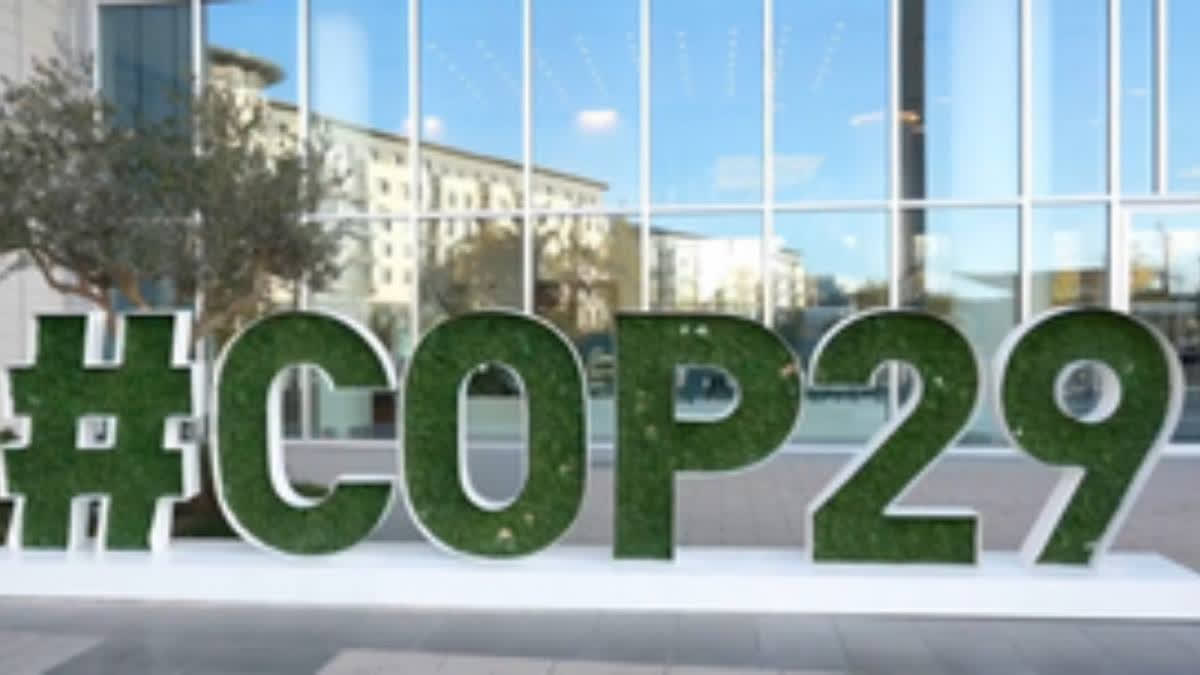New Delhi: Developing countries, including China and India, sparred with rich nations over including "unilateral trade measures", such as the European Union's carbon border tax, in the agenda of the UN climate talks, delaying the formal start of the conference on Monday.
Agenda disputes are common at UN climate conferences but this one is especially significant as countries have limited time to agree on a new climate finance goal to help developing countries adapt to and fight climate change, the central issue this year.
The conference opened with Azerbaijan, the host of this year's UN climate conference, calling on all countries to urgently resolve outstanding issues to agree on a new climate finance goal, which UN climate chief Simon Stiell said is in the self-interest of every nation.
The proceedings were then suspended so delegates could negotiate on the agenda.
The opening plenary got significantly delayed as developed and developing countries debated whether to make "unilateral trade measures", such as the European Union's Carbon Border Adjustment Mechanism (CBAM), an agenda item at COP29.
China, on behalf of the BASIC group of countries, submitted a proposal to the UN climate body last month requesting that this year's COP address the issue of unilateral trade measures.
The CBAM is the EU's proposed tax on energy intensive products, such as iron, steel, cement, fertilisers and aluminium, imported from countries like India and China. The tax is based on carbon emissions generated during the production of these goods.
The EU has earlier argued that this mechanism creates a level playing field for domestically manufactured goods, which must adhere to stricter environmental standards and helps curb emissions from imports.
However, other nations, particularly developing countries, have pointed out that such a tax could harm their economies and make trade with the EU expensive.
They have contended that under the UN climate rules, no nation should impose emission reduction strategies on others.
"The BASIC group's proposal reflects the deep concerns of many developing countries, particularly China. It's important to note that this proposal is not only directed against the CBAM, it reflects broader anxieties about the overall direction of industrial policies in the EU and developed countries like the US.
"These countries are increasingly restricting their domestic markets to more cost-competitive green products, such as electric vehicles and solar panels manufactured in China. This approach will inevitably delay global climate action, there's no question about it," Li Shuo, Director, China Climate Hub, Asia Society Policy Institute, told PTI.
Finance Minister Nirmala Sitharaman last month termed CBAM "unilateral and arbitrary" and said that such measures could potentially harm India's industries and disrupt the balance in international trade.
According to Delhi-based think tank Centre for Science and Environment (CSE), CBAM will impose an additional 25 per cent tax on carbon-intensive goods exported from India to the EU.
This tax burden would represent 0.05 per cent of India's GDP.
Another contentious agenda item is the focus on climate finance versus discussion on all global stocktake outcomes.
LMDC countries, including India and China, along with the African Group, want COP29 to prioritise climate finance, while developed countries including the US, the UK, and the EU want to discuss all stocktake outcomes, including mitigation and transitioning away from fossil fuels.
According to Meena Raman from the Third World Network, the dialogue is supposed to focus on finance but developed countries are resisting a primary focus on funding to help developing countries adapt to and combat climate change.
"They are saying the dialogue should cover all Global Stocktake outcomes (from COP28) with more emphasis on mitigation," Raman said during a press conference.
"They are trying to divert attention from the crucial issue of climate finance," she said.



